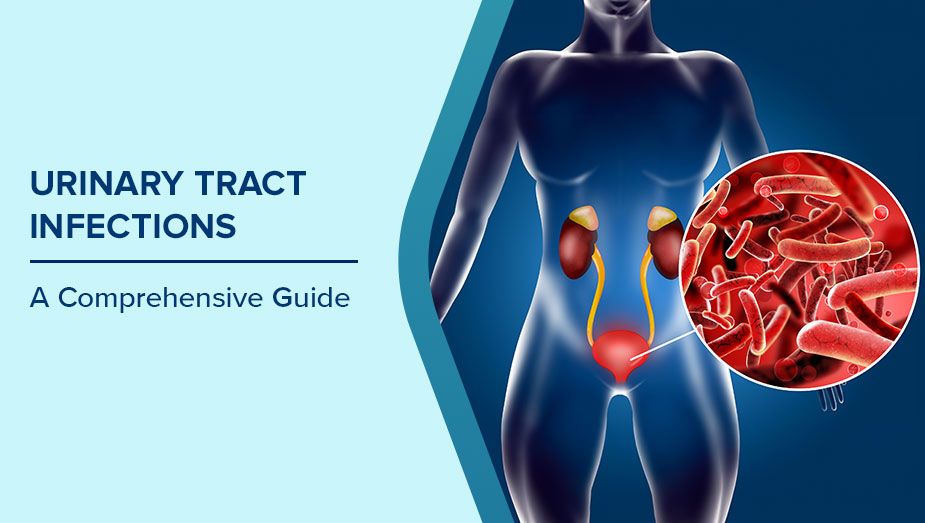Prostate health is a vital aspect of men’s overall well-being, especially as they age. Untreated prostate issues such as enlargement or inflammation can disrupt normal urinary flow, often leading to urinary tract infections (UTIs), which pose serious health risks. This comprehensive article explores how prostate problems contribute to UTIs, the mechanisms involved, potential complications, and approaches to prevention and treatment.
Table of Contents
Understanding the Prostate and Its Common Problems
The prostate is a gland located beneath the bladder, surrounding the urethra. Its normal function is essential for male reproductive health. However, prostate enlargement, commonly benign prostatic hyperplasia (BPH), affects many men over 50. Inflammation of the prostate (prostatitis) can also occur, causing pain and urinary symptoms.
Enlargement or inflammation can compress the urethra, restricting urine flow and causing incomplete bladder emptying. This urinary stasis creates an environment conducive to bacterial growth, increasing the risk of infection.
How Prostate Enlargement Leads to Urinary Tract Infections
1. Bladder Outlet Obstruction
Enlarged prostate tissue narrows the urethra’s passage, making it difficult to fully empty the bladder during urination. This is known as bladder outlet obstruction (BOO). The residual urine left behind becomes stagnant.
2. Residual Urine and Bacterial Growth
Stagnant urine in the bladder offers a fertile breeding ground for bacteria, particularly Escherichia coli, the most common pathogen causing UTIs. The inability to flush out bacteria effectively predisposes men to infections.
3. Increased Post-Void Residual Volume (PVR)
Studies confirm a correlation between prostate size and post-void residual urine volume. High PVR values (>100 mL) are significantly linked to increased UTI risk due to urine retention.
4. Recurrent and Complicated Infections
Untreated prostate issues can lead to recurrent UTIs. These infections may escalate, causing complications such as bladder inflammation, kidney infections (pyelonephritis), or even systemic infection (sepsis).
Symptoms Indicating Prostate-Related Urinary Problems and UTI
Prostate Symptoms
-
Weak urine stream
-
Difficulty initiating urination
-
Frequent urination, especially at night
-
Sensation of incomplete bladder emptying
UTI Symptoms
-
Burning sensation or pain during urination
-
Frequent, urgent need to urinate
-
Cloudy or strong-smelling urine
-
Pelvic discomfort or pain
-
Fever or chills (if infection has spread)
If you experience these symptoms, early medical assessment is crucial.
Potential Complications If Left Untreated
Acute Urinary Retention
A medical emergency where urine flow is suddenly blocked, causing severe pain and inability to urinate. Requires immediate catheterization to prevent bladder and kidney damage.
Kidney Damage
Prolonged obstruction can cause urine to back up, leading to hydronephrosis, kidney scarring, or kidney failure.
Chronic Recurrent UTIs
Cause repeated courses of antibiotics, increasing risk of antibiotic resistance and potentially leading to chronic urinary tract damage.
Sepsis
Infections spreading to the bloodstream, causing life-threatening systemic illness.
Diagnosis and Evaluation
Healthcare providers diagnose prostate-related urinary problems and UTIs through:
-
Urine tests to detect infection
-
Measurement of post-void residual urine via ultrasound
-
Digital rectal exam to assess prostate size
-
Uroflowmetry to evaluate urine flow
-
Imaging studies if complications are suspected
Early diagnosis enables effective management and reduces risks.
Treatment Strategies
Managing Prostate Issues
-
Medications such as alpha-blockers or 5-alpha reductase inhibitors to relieve obstruction
-
Minimally invasive or surgical procedures if necessary
Treating UTIs
-
Appropriate antibiotics guided by bacterial sensitivity
-
Increased fluid intake to flush urinary tract
-
Monitoring and preventing recurrence
Preventive Measures
-
Regular urological check-ups, especially for men over 50
-
Prompt treatment of urinary symptoms
-
Maintaining good hygiene and hydration
Lifestyle Tips to Support Prostate and Urinary Health
-
Stay well hydrated
-
Avoid holding urine for extended periods
-
Maintain a balanced diet rich in antioxidants
-
Limit caffeine and alcohol intake
-
Practice safe sexual behaviors
FAQs
1. Can untreated prostate enlargement cause urinary tract infections?
Yes. Untreated prostate enlargement causes bladder outlet obstruction and leads to urine retention, which increases the risk of bacterial growth and UTIs.
2. What symptoms suggest I might have a UTI due to prostate problems?
Symptoms include burning urination, frequent urge to urinate, pelvic pain, cloudy urine, and sometimes fever.
3. How can UTIs from prostate issues be prevented?
Early diagnosis and treatment of prostate conditions, maintaining hydration, good hygiene, and timely medical care can prevent UTIs.
4. Is it possible for UTIs to cause kidney damage?
Yes. If untreated, lower UTIs can progress to kidney infections, which may cause permanent damage.
5. What should I do if I can’t urinate suddenly?
This could be acute urinary retention, a medical emergency. Seek immediate medical attention.
6. Are antibiotics always needed for UTIs related to prostate problems?
Most often yes, but treatment should be guided by medical evaluation and bacterial sensitivities.
7. Can lifestyle changes improve symptoms caused by prostate enlargement?
They can help manage symptoms and reduce infection risk but usually aren’t a substitute for medical treatment.
8. When is surgery considered for prostate issues?
If medications fail, or there are complications like recurrent infections or urinary retention, surgery might be recommended.
Conclusion
Untreated prostate issues significantly increase the risk of urinary tract infections due to urine retention and bacterial proliferation. Awareness of symptoms, regular medical evaluations, and timely treatment are critical to preventing complications such as kidney damage and severe infections. Men should proactively manage prostate health to maintain urinary tract wellbeing and overall quality of life.

